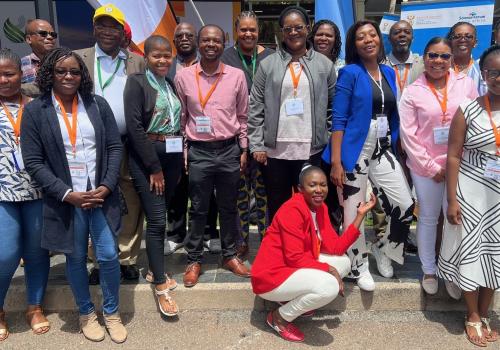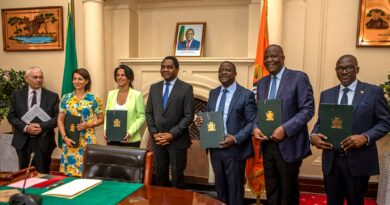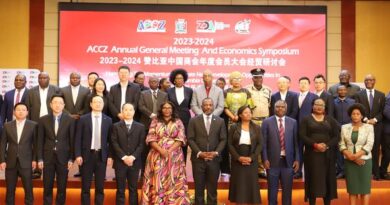Southern African Journalists Sharpen Science Communication Skills at SADC-UNESCO Workshop
Journalists from across the Southern African Development Community (SADC) and beyond recently converged in Pretoria for a two-day workshop titled “Advancing Science Journalism and Science Communication Capacity in the SADC-region and Africa.”
Held at the Council for Scientific and Industrial Research (CSIR) Convention Centre, the event was a collaborative effort between the SADC Secretariat, UNESCO-ROSA, the South African Department of Science and Innovation (DSI), and various partners.
Participating organizations included the National Research Foundation-South African Agency for Science and Technology Advancement (NRF-SAASTA), Human Sciences Research Council (HSRC), Southern African Network of Water Centres of Excellence (SANWATCE), South African Science Journalists’ Association (SASJA), Stellenbosch University (SU), and Tshwane University of Technology (TUT).
The workshop, conducted in a hybrid format, aimed to deepen journalists’ understanding of complex scientific issues facing Africa.
Ethical considerations in science journalism, particularly from a social justice perspective, were explored to enhance communication of science and research outcomes to diverse audiences.
Upon completion, participants are expected to possess a comprehensive understanding of selected scientific issues relevant to Southern Africa and Africa, along with the ability to effectively communicate them.
The workshop also equipped journalists with ethical tools to navigate complex scientific topics and skills to combat disinformation.
Ms. Mmampei Chaba, Chief Director, Multilateral Cooperation and Africa, DSI, announced the workshop’s annual recurrence, following the success of the inaugural event in 2022.
She encouraged participants to attend the World Federation of Science Journalists’ annual conference in 2025, hosted for the first time in Africa by South Africa.
Ms. Anneline Morgan from SADC Secretariat urged journalists to participate in the annual SADC Media Awards competition across categories such as Photo, Print, Television, and Radio Journalism. Established in 1996, these awards recognize outstanding media work in disseminating information on SADC.
Ms. Mandi Smallhorne, President of SASJA and Vice-President of WFSJ, emphasized the urgent need for expanded coverage of climate change stories.
Considering recent climate crises in the region, she called on journalists to report on the local and regional impacts of global climate system changes on environmental, health, and social issues.



